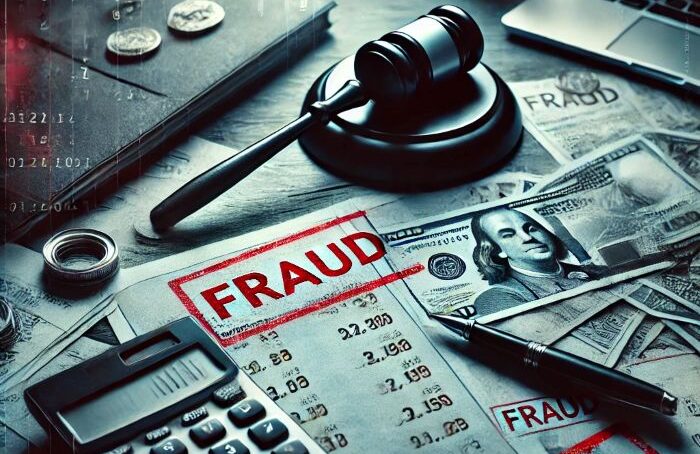The legal landscape of white-collar crime is characterized by a complexity and subtlety that are almost unique within criminal law. This domain does not focus solely on individual acts but rather on an interplay of behaviors taking place within the shadowy boundaries of business transactions, compliance obligations, and organizational decision-making processes. The intertwining of technical knowledge, legal norms, and business interests requires an in-depth, multidimensional approach to any form of defense. Simply denying the allegations is insufficient; drafting a robust legal strategy demands a meticulous reconstruction of facts, a thorough understanding of complex regulations, and anticipating the often subtle interpretations of laws and regulations by regulators and criminal justice authorities.
This context creates an unavoidable need for specialized knowledge and experience, where not only the letter of the law but also its spirit must be fully understood and applied. The emphasis lies on comprehending the intentional component, the so-called ‘mens rea’, and how it can be established within the framework of corporate governance and compliance. Every step in the investigation process must therefore be carefully weighed, as negligence can lead to a cascade of adverse legal consequences, including criminal liability, fines, reputational damage, and asset seizure. The legal defense in this context requires an in-depth analysis of facts and circumstances, as well as a strategic deployment of procedural tools and negotiation skills. It is not merely about contesting specific accusations but also about protecting the broader interests of justice and proportionality within the criminal justice system.
The Importance of a Thorough Factual Reconstruction and Forensic Investigation
The foundation of an effective defense in white-collar crime cases is formed by an extremely precise and detailed factual reconstruction. Without an objective and comprehensive understanding of the case’s complexity, no legal strategy can be effectively formulated. The often technical and financially complex nature of these cases demands a combination of legal and forensic investigation, in which financial flows, electronic communications, and internal decision-making processes are carefully analyzed. This requires collaboration with forensic accountants, IT specialists, and compliance experts who are capable of uncovering the material truth and thereby strengthening the legal position. A superficial approach quickly leads to missed opportunities and potential pitfalls in the defense.
Besides identifying the relevant facts, it is crucial to clarify the context in which these facts arose. The business environment, the role of the accused within the organization, and the way decisions were made are key elements that determine the legal framework. The nuance with which these elements are highlighted can make the difference between a conviction based on intent or an acquittal due to insufficient evidence. The importance of contextual analysis cannot be underestimated, especially in an era where compliance and regulations are developing exponentially and companies have increasingly complex structures. Precisely within this maze of procedures and rules, an in-depth investigation can provide clarity.
Finally, this factual analysis must be translated into a coherent and convincing legal narrative. This means that all findings must be presented clearly, consistently, and logically, so that they fit not only within the legal framework but are also understandable to the judge and other parties involved. Connecting the technical facts to the legal assessment framework requires precision and strategic insight, where every nuance counts. A carefully constructed reconstruction thus forms the backbone of a successful defense, able to make complex matters accessible and effectively substantiate legal rebuttals.
Legal Interpretation of Complex Regulations and the Importance of Precision
The field of white-collar crime is characterized by extensive and complex regulations, including but not limited to anti-corruption, sanctions law, financial integrity, and fraud prevention, which overlap and reinforce each other. The legal interpretation of these rules requires not only knowledge of the letter of the law but also of case law and the policy nuances that have developed around it. Each statutory provision can have multiple layers of interpretation, depending on the scope and context of the offense. It is vital that every accusation is analyzed meticulously within this framework, with the central question being whether all legal elements of the criminal offense have actually been met.
In particular, the issue of subjective unlawfulness plays a crucial role. This means that not only must the objective facts be proven, but it must also be demonstrated that the accused acted knowingly and intentionally. This legal threshold is high and requires sharp argumentation that critically tests all assumptions about intent, knowledge, and complicity. Incorrect interpretations or assumptions can lead to unjust convictions or, conversely, missed opportunities to establish innocence. It demands detailed knowledge of the criminal law assessment framework and the specific characteristics of white-collar crime.
Moreover, new laws, regulations, and guidelines from supervisory authorities are constantly evolving, sometimes with unclear or contradictory standards. This creates an additional layer of uncertainty and requires continuous updating of knowledge. The defense must proactively anticipate these developments and maintain a coherent and strategically responsible line within them. This may include emphasizing points of interpretive dispute or initiating procedures to clarify ambiguities, thereby contributing to the safeguarding of a fair trial.
Strategic Use of Procedural Tools and Negotiation Skills
The defense strategy in white-collar crime is not limited to contesting the substantive allegations. The procedural legal arena offers a range of possibilities to influence the course of the case, which can be decisive for the final outcome. This includes, for example, filing evidence requests, challenging the legality of the investigation, and filing motions to suspend or exclude evidence. Every procedural step must be strategically chosen and timed with a view to securing the best possible position in the subsequent process.
In addition, negotiation plays an essential role. The criminal justice system, especially in complex cases, allows room for constructive dialogue with the public prosecutor’s office and supervisory authorities. The ability to negotiate in a diplomatic and legally substantiated manner about settlements, fines, or other criminal measures can result in significantly more favorable outcomes. This requires not only legal expertise but also a keen sense of the dynamics within criminal enforcement and a deep understanding of the interests and risks of all involved parties.
At the same time, every negotiation must take place within a framework of integrity and purposefulness, with the ultimate interest of the client as the guiding principle. This means that concessions are carefully weighed against their possible impact on reputation, business operations, and future compliance. The combination of procedural knowledge and negotiation skills thus forms a powerful toolkit to not only conduct the best possible defense in white-collar cases but also to realize pragmatic solutions that do justice to the complexity of the case.
The Crucial Role of Compliance and Risk Management in the Defense
In the context of white-collar crime, the role of compliance and risk management must never be underestimated. Precisely because the facts often lie in inadequate or poorly implemented compliance structures, demonstrating a well-functioning system can be a decisive factor. This requires a detailed analysis of internal operations, including policy documents, training, control systems, and the culture within the organization. The extent to which an organization has proactively and effectively managed risks can be decisive in assessing intent and culpability.
The presence of a robust compliance framework can also have a deterrent effect on prosecution and punishment by demonstrating that the organization actively tried to prevent norm violations. In some cases, this can lead to a less severe sanction or even dismissal of the case. Supporting such claims requires not only collecting evidence but also a nuanced presentation that explains the efforts and impact of compliance in connection with the specific circumstances of the case.
At the same time, the absence or failure of risk management and compliance can be the starting point for an intensive legal investigation. Therefore, it is necessary to carefully map the situation within the organization at an early stage of the investigation and, where possible, propose corrective measures. A proactive approach can make the difference between a defensive, reactive response and a strategically substantiated defense that also contributes to strengthening the organization in the longer term.
The Impact of Internal and External Investigations on the Defense
Internal and external investigations play a decisive role in the context of white-collar crime and often serve as the starting point of a criminal procedure. The moment when an investigation is announced or initiated is crucial for the subsequent defense. This process demands the utmost care in collecting, interpreting, and presenting information, where every step can potentially yield evidence or lead to unintended legal pitfalls. It is essential to thoroughly understand and critically assess the investigation methodology, taking into account the legality, proportionality, and objectivity of the investigation.
The course of the investigation largely determines the strategy to be followed in the defense. A sound knowledge of the rules of the game, the rights of the suspect, and the duties of investigators is indispensable to intervene in a timely manner and prevent irregularities. Moreover, a thorough analysis of the investigative process provides tools to challenge unreliable or incomplete evidence. This requires a sharp legal eye and a strategic approach that also considers the interrelationships between internal compliance departments, external auditors, and criminal authorities.
Furthermore, it must be recognized that internal investigations also have a political and business management dimension, where interests and reputations are at stake. This adds an additional layer of complexity, as legal defense cannot be seen in isolation from the broader context of business operations and governance. Timely advice on communication, protection of confidential information, and management of risks outside the courtroom also fall within the responsibilities that the defense must assume. Consequently, the defense becomes an integral part of a broader risk management process.
The Importance of Evidentiary Precision and Evidence Management
The evidentiary law within the domain of white-collar crime is particularly complex and requires extremely careful handling of evidence. The collection, analysis, and presentation of evidentiary material must comply with strict legal standards to prevent exclusion or invalidation. In cases where digital data, emails, financial documents, and internal reports are central, it is crucial to conclusively establish the chain of custody and authenticity. This demands specialized knowledge of forensic methods and technical processes.
A correct and strategic use of evidence can mean the difference between acquittal and conviction. This starts with critically assessing the evidence presented by the prosecution, focusing on its relevance, reliability, and completeness. Imperfections or inconsistencies in the evidence can be exploited to sow doubt about the demonstrability of guilt. At the same time, care must be taken to avoid pitfalls where alleged weaknesses in the evidence lead to a weakening of one’s own legal position.
In addition, the management of evidence throughout the entire process must be transparent, secure, and compliant with legal requirements. This applies not only to the formal judicial process but also to all preparatory phases, including internal investigations and communication with supervisory authorities. Establishing robust evidence management is an essential part of the overall defense strategy and requires integrated cooperation between lawyers, forensic specialists, and IT experts.
The Role of International Cooperation and Jurisdiction in White-Collar Cases
White-collar crime increasingly transcends national borders and occurs in an international context where jurisdiction, cooperation between investigative agencies, and mutual extradition play a prominent role. This adds an extra dimension to the defense, where not only national law is relevant but also international treaties, regulations, and practices. It is vital to gain early insight into the international aspects of a case, as these can greatly influence the choice of legal remedies and defensive strategy.
Complexity is increased by the fact that countries may differ in how they define and punish white-collar crime. This can lead to conflicts over jurisdiction and applicable law, requiring the defense to be alert to possible violations of procedural rights or disproportionate prosecutions. Moreover, differences in standards of proof and procedures can have significant impact on the course of a case. Proper handling of these international legal nuances requires extensive experience and thorough knowledge of international legal assistance and criminal cooperation.
Practical aspects of international cooperation, such as information exchange, remote hearings, and issuing requests for legal assistance, also affect the process and defense. In some cases, leveraging international contacts and procedures can lead to delays, suspensions, or even dismissal of prosecutions if used strategically and expertly. Therefore, it is crucial that the defense not only recognizes these international dimensions but actively deploys them as part of a broadly defined legal strategy.
Reputation Protection and Communication as an Essential Part of the Defense
Besides the legal aspects of white-collar crime, the importance of reputation protection and thoughtful communication must never be underestimated. In cases affecting business integrity and public trust, reputational damage can have enormous financial and operational consequences, often far outweighing formal criminal sanctions. Developing and executing a communication plan aligned with the legal strategy is therefore an integral part of an effective defense.
Managing communication requires finesse, clarity, and consistency, carefully dealing with the press, shareholders, regulators, and internal stakeholders. Careless statements or failure to timely inform involved parties can lead to escalations and an unfavorable public image. It is therefore crucial to align the communication strategy with the legal process, centering on transparency and managing expectations.
At the same time, proactive reputation protection can also support the legal defense. By emphasizing commitment to compliance, transparency, and remedial measures, trust from external parties can be restored, potentially reducing pressure from the criminal justice system. This requires an integrated approach where legal, communicative, and business disciplines work seamlessly together so that the defense is not merely reactive but also forward-looking and preventive.
Strategic Use of Alternative Dispute Resolution in White-Collar Crime
In the context of white-collar crime, alternative dispute resolution (ADR) is becoming an increasingly important tool alongside traditional criminal proceedings. This primarily involves mediation, settlements, and other forms of negotiations outside of court. Opting for such an approach can offer significant advantages, for example by limiting reputational damage, shortening the duration of the process, and avoiding high litigation costs. However, employing alternative procedures requires profound knowledge of the legal frameworks and the ability to strategically anticipate the potential consequences of each step.
The effectiveness of alternative dispute resolution is determined by the extent to which the interests of all involved parties are identified and can be constructively secured. This requires careful weighing of risks and opportunities, taking into account not only legal but also business and reputational factors. It is important to clearly define in advance which objectives are pursued with the alternative procedure and how these align with the broader defense strategy. Additionally, the choice of the right negotiators and preparation for possible scenarios play a crucial role.
The legal scrutiny of settlements and agreements within the framework of criminal prosecution is complex and subject to strict conditions, particularly regarding transparency, proportionality, and compliance with public interests. Therefore, it is essential that these instruments are applied carefully, with the defense playing an active role in ensuring that no unreasonable concessions are made that could have adverse long-term effects. The tactical use of alternative dispute resolution is thus not a mere question of cost-saving, but a vital component of an integrated, forward-looking defense approach.
The Complexity of Forensic Financial Investigation in Defense
Forensic financial investigation is an indispensable element in defending against accusations of white-collar crime. Understanding complex financial structures, transactions, and accounting data is key to building a solid and substantiated defense. This is not merely about studying numbers, but about uncovering the underlying facts, motives, and actions that are legally relevant. This requires expertise spanning financial, legal, and technical disciplines.
Conducting forensic investigations demands a methodical and systematic approach, where all relevant data is collected, analyzed, and verified. This process includes identifying suspicious transactions, tracing money flows, and assessing the consistency and completeness of financial documentation. The findings of this investigation can be decisive in demonstrating evident shortcomings, errors, or even deliberate manipulations, but also in substantiating innocence or the unreliability of evidence.
Moreover, it is important that the forensic investigation is carried out independently, transparently, and with legal validity, so that the results hold up in court. This requires close cooperation between legal experts, accountants, IT specialists, and other professionals. Through this multidisciplinary approach, a solid foundation is created upon which the defense can build, aiming to produce a clear, convincing, and rebutted narrative that adequately counters the accusations.
Prevention and Compliance as the Foundation of a Robust Defense
“Prevention is better than cure” is an adage of great importance in the field of white-collar crime as well. Establishing and maintaining a sound compliance program therefore forms the foundation of a robust defense strategy. By implementing clear codes of conduct, risk management systems, and internal controls, organizations can not only reduce the risk of criminal liability but also demonstrate that they make efforts to prevent criminal offenses.
An effective compliance program goes beyond documenting procedures; it requires a culture of integrity embraced at all levels of the organization. This implies ongoing training, awareness-raising, and fostering transparency. Additionally, it is crucial that compliance is integrated at the strategic level in decision-making, with risk areas identified and addressed promptly. Through this proactive approach, an organization can not only prevent problems but also stand stronger in the event of a judicial investigation.
The burden of proof regarding the existence and operation of a compliance program can play a decisive role in criminal cases. An organization that can demonstrate that it has taken effective preventive measures and responded adequately to signs of misconduct can expect a more nuanced approach by investigative authorities and the judiciary. This underlines that investing in compliance is not only a legal obligation but also a strategic investment in the legal resilience and reputation of the organization.
The Legal and Ethical Dilemmas Surrounding Whistleblowers and Witness Statements
The position of whistleblowers and witnesses in criminal investigations of white-collar crime raises complex legal and ethical questions. Whistleblowers play a crucial role in exposing irregularities, but their statements and involvement can also pose challenges for the defense. Assessing the reliability, motives, and consistency of such statements is essential to ensuring a fair trial.
Moreover, dealing with whistleblowers entails legal obligations concerning protection, confidentiality, and non-retaliation. Carefully managing these aspects within the defense strategy is necessary to safeguard the rights of all parties involved and to prevent abuse of procedures. Furthermore, effective handling of whistleblowers can have a positive impact on public perception and the process, provided it is done in a transparent and ethically responsible manner.
The delicate balance between protecting the interests of the accused and respecting the societal need for transparency and justice makes this aspect one of the most challenging in practice. It requires a sophisticated legal approach, paying attention both to procedural safeguards and the ethical dimensions that the topic entails. This careful consideration thus forms an inseparable part of an integral and principled defense.
Conclusion — A Robust Legal Strategy with Sharp Insight into Financial, Technical, Ethical, and Reputational Aspects
Defending against allegations of white-collar crime requires an exceptionally thorough and multidimensional approach. It is not merely about conducting a legal battle but about intertwining a solid legal strategy with keen insight into financial, technical, ethical, and reputational aspects. Every phase of the process, from the initial investigation through potential legal proceedings and alternative dispute resolutions, demands careful consideration of interests and risks. All this takes place within an increasingly complex legal landscape, often with international dimensions and characterized by rapid technological developments.
The success of the defense lies in the combination of meticulous evidence management, the engagement of specialized experts, and the ability to adequately anticipate changing circumstances and new insights. The human aspect must not be overlooked: careful management of communication and reputation can be decisive for the ultimate outcome, both legally and socially. It also becomes clear that preventing problems through a robust compliance policy and proactive risk management is an essential pillar for a sustainable legal position.
Ultimately, practice shows that defense in white-collar crime extends far beyond the classical legal domain. It is a complex interplay of legislation, business administration, ethics, and communication that requires thorough preparation, expertise, and strategic insight. Only through this integrated approach can justice be served for the substantial interests at stake and can a fair and balanced outcome be pursued in one of the most challenging areas of law today.








